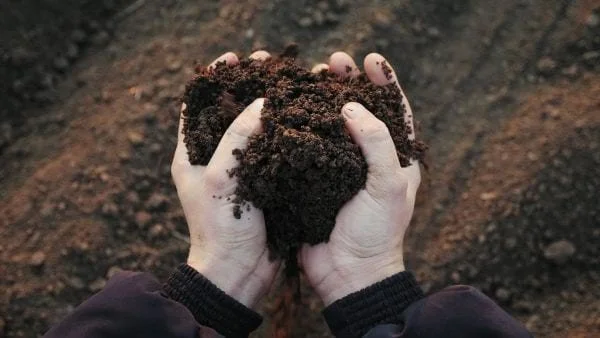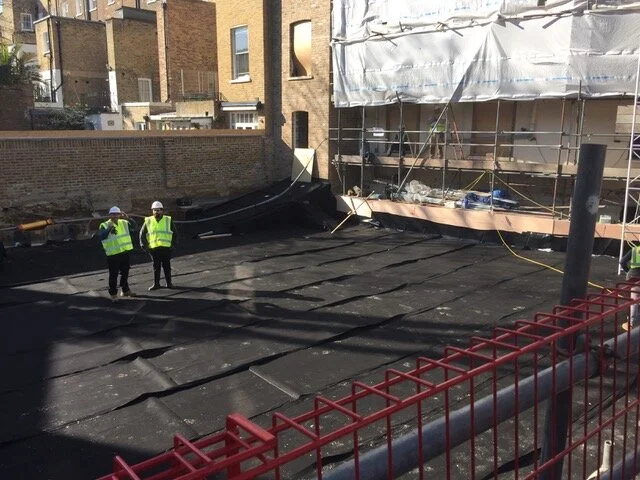Saving the planet through soil!
Soil has a critical role in tackling climate change, and at Alaster Anderson we’re helping our clients make sure their gardens play their part in reducing greenhouse gas emissions.
Healthy, well managed soils with a rich biodiversity capture carbon dioxide from the atmosphere and store it as soil organic carbon, slowing climate change.
This happens because as they grow, plants transform CO2 into plant tissue and during this process some carbon is leached into the soil.
Soils with a high organic carbon content are also more fertile, more resilient and more stable. They have a better structure, with greater drainage and aeration, and increase plant health and vitality by getting more water and oxygen to plant roots.
“The health of soil, plant, animal and man is one and indivisible.”
Sustaining life
As Lady Eve Balfour, founder of the Soil Association, believed: “The health of soil, plant, animal and man is one and indivisible." Soil is a combination of minerals, organic matter, air, water and living organisms. It’s essential to sustain life.
But if soil is badly managed, it releases excess carbon that links with other molecules to create greenhouse gasses.
Soil by numbers:
10 billion tonnes of carbon is stored in UK soils
The Earth’s soil is estimated to hold up to 2,500 gigatons of carbon
But:
1/3 of the world’s arable soils are degraded
It can take a thousand years for just one centimetre of topsoil to form
We are losing soil between 10 and 40 times faster than it’s formed
Soil degradation undermines carbon capture and leads to soil erosion, causing floods, landslides and reducing the amount of land available to grow food.
This has become such a live topic that the Soil Association has launched a Save Our Soils (SOS) campaign, while the United Nations held World Soil Day last December to raise awareness of the importance of maintaining healthy ecosystems and human wellbeing by addressing soil management challenges.
What can we do to help?
Growing plants helps recycle nutrients back into the soil, boosting its capacity to sequester carbon. We can make a difference by:
Composting to reduce the amount we send to landfill, plus compost is a fantastic soil conditioner for gardens
Keeping as much organic matter in the system as possible
Avoiding synthetic fertilisers – these leach into local water bodies and emit nitrous oxide, a powerful greenhouse gas
Mulching soil annually to help lock in moisture, feed plants and encourage healthy bacteria and fungi to grow, resulting in healthier plants.
“You want a long-term, healthy soil that will be sustainable for 10-20-30 years. If it is good, viable and nutritious it will look after itself. It’s best to enhance what’s already there rather than start afresh”
Our climate-friendly credentials
We source from responsible suppliers and only recommend and use soils with a British Standard. We also test soils in our gardens with a highly reputable soil advisory company.
Saving water: through good soil management we ensure plants can perform at their best with limited irrigation.
Organic approach: we reduce the use of chemicals with a detrimental effect on the environment and use biological control to manage pests, such as ladybirds and lacewings to eat aphids on lime trees.
Zero-emission tools: for at least seven years we’ve been using electric tools to reduce emissions from garden equipment, improve air quality and cut noise pollution.
Without healthy soil it would be impossible for the planet to survive. We’re proud to be doing our bit.
To read more blogs about soil see here, Don’t Get Bogged Down (Poor Drainage) , How Deep is your soil? and The Secret of Healthy Soil (Soil Profiles).
You can reach us on 0207 305 7183 or email at enquire@alasteranderson.com





